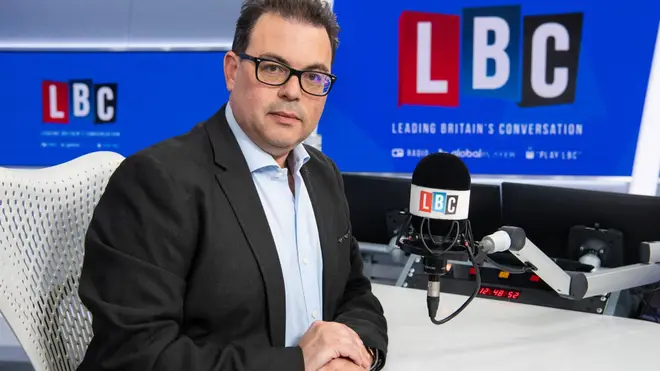
Shelagh Fogarty 1pm - 4pm
20 November 2021, 15:29 | Updated: 20 November 2021, 21:54

LBC's legal expert Daniel Barnett outlines what you can do if your child disagrees with you on the coronavirus vaccine.
Since September 2021, children of 12 and over have been eligible for Covid vaccination in the UK. But what can you do if you disagree with your child about whether they should receive the vaccine?
Remember that doctors stress it’s best to try to reach agreement with your child. Even if you have a right to prevent your child being vaccinated, or to make them have it, that doesn’t mean it’s a good idea to do so.
Legally, injecting a person with a vaccine without their consent is both a serious criminal offence. Doctors aren’t exempt just because they have a medical degree. A doctor or nurse who fails to obtain consent to vaccination is committing the same criminal offence as a member of the public who sticks a needle into the arm of a random passer by.
If your child is eighteen or over, it’s their decision whether to get vaccinated or not. Legally, your views are irrelevant and you can neither legally compel them nor forbid them – just as you can’t ask a court to force, or stop, your 18 year old getting a tattoo.
The Family Law Reform Act 1969 states that a 16 or 17 year old can legally consent to vaccination. That means you can’t stop them being vaccinated if they decide to have the jab.
If your 16 or 17 year old refuses the vaccine, but you think they should have it, the position is a bit more complex. You can legally consent to them having the injection, but the doctor or nurse will almost certainly refuse despite your consent. That’s because the Green Book (which is Public Health England’s definitive guidance on immunisation for clinicians working in the NHS) states that refusal by a child over 16 should be accepted.
So again, like with the over 18s, you are very unlikely to be able to decide for your 16 or 17 year old. Their decision, for all practical purposes, is final.

What can you do if your child disagrees with you on the Covid vaccine?
If your child is under 16, and they disagree with you about whether they should be vaccinated, a doctor or nurse will talk to your child and decide whether they have a sufficient understanding, intelligence and maturity to enable then to understand fully the implications of vaccination, including the potential side effects, or the implications of not being vaccinated. Lawyers call this ‘Gillick competence’, after the name of the case where this principle was first decided.
If the clinician thinks that your child is Gillick-competent, i.e. that they fully understand the implications of vaccination, then they will allow the child to decide.
If the doctor or nurse thinks your child is not Gillick competent, i.e. they are not mature or intelligent enough to make an informed decision themselves, then you will be entitled to take the final decision. If two parents disagree on whether their child should be vaccinated, the court could get involved to determine whether vaccination is in the child’s best interests.